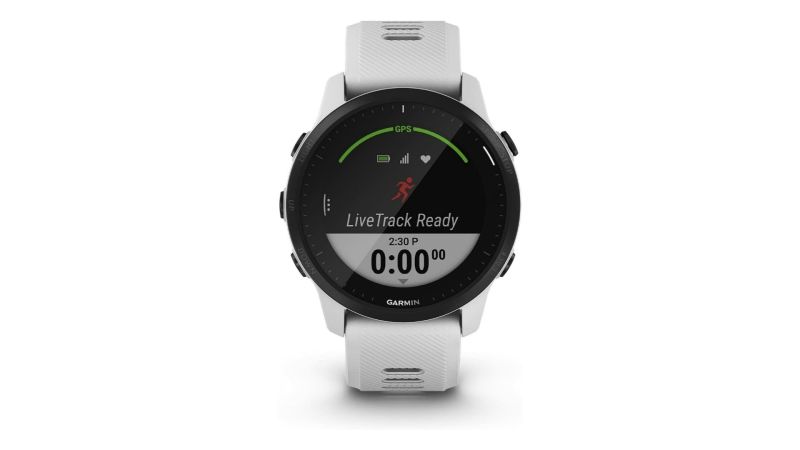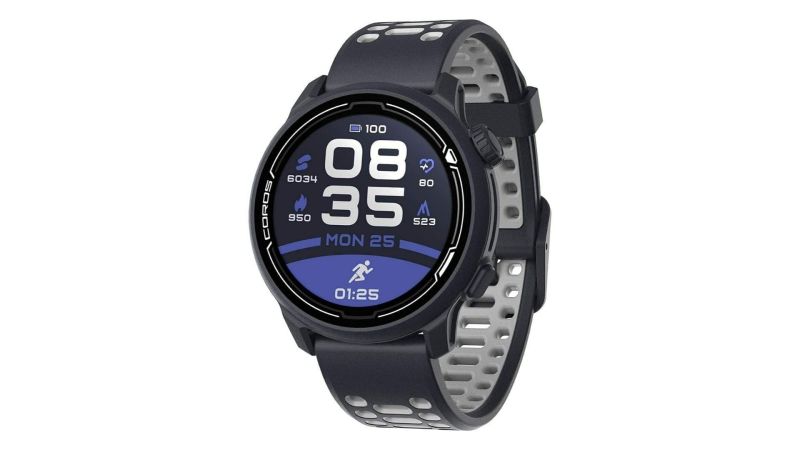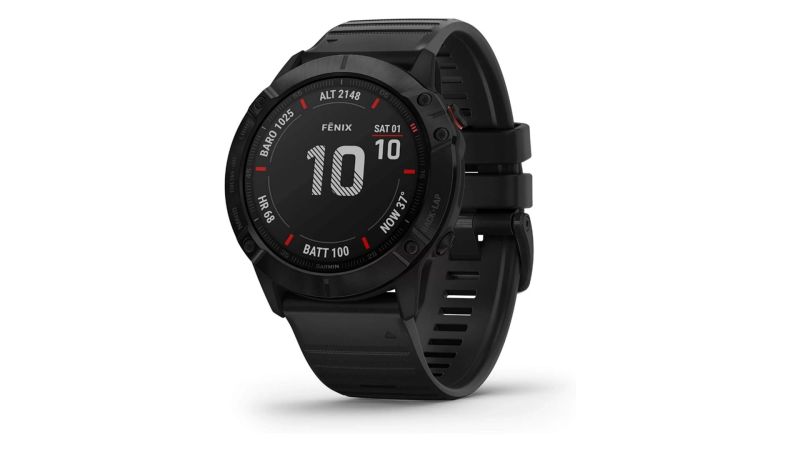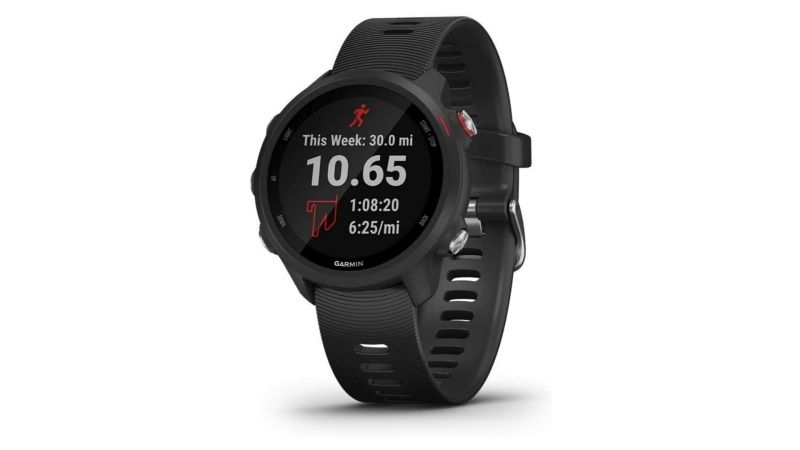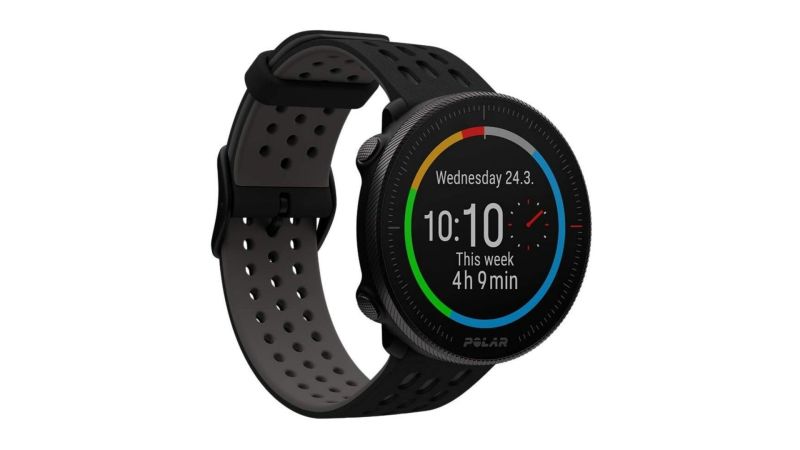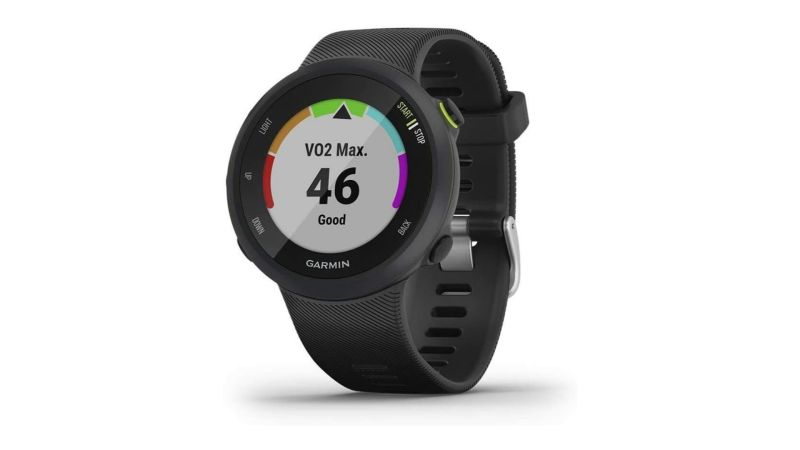We may earn revenue from the products available on this page and participate in affiliate programs.
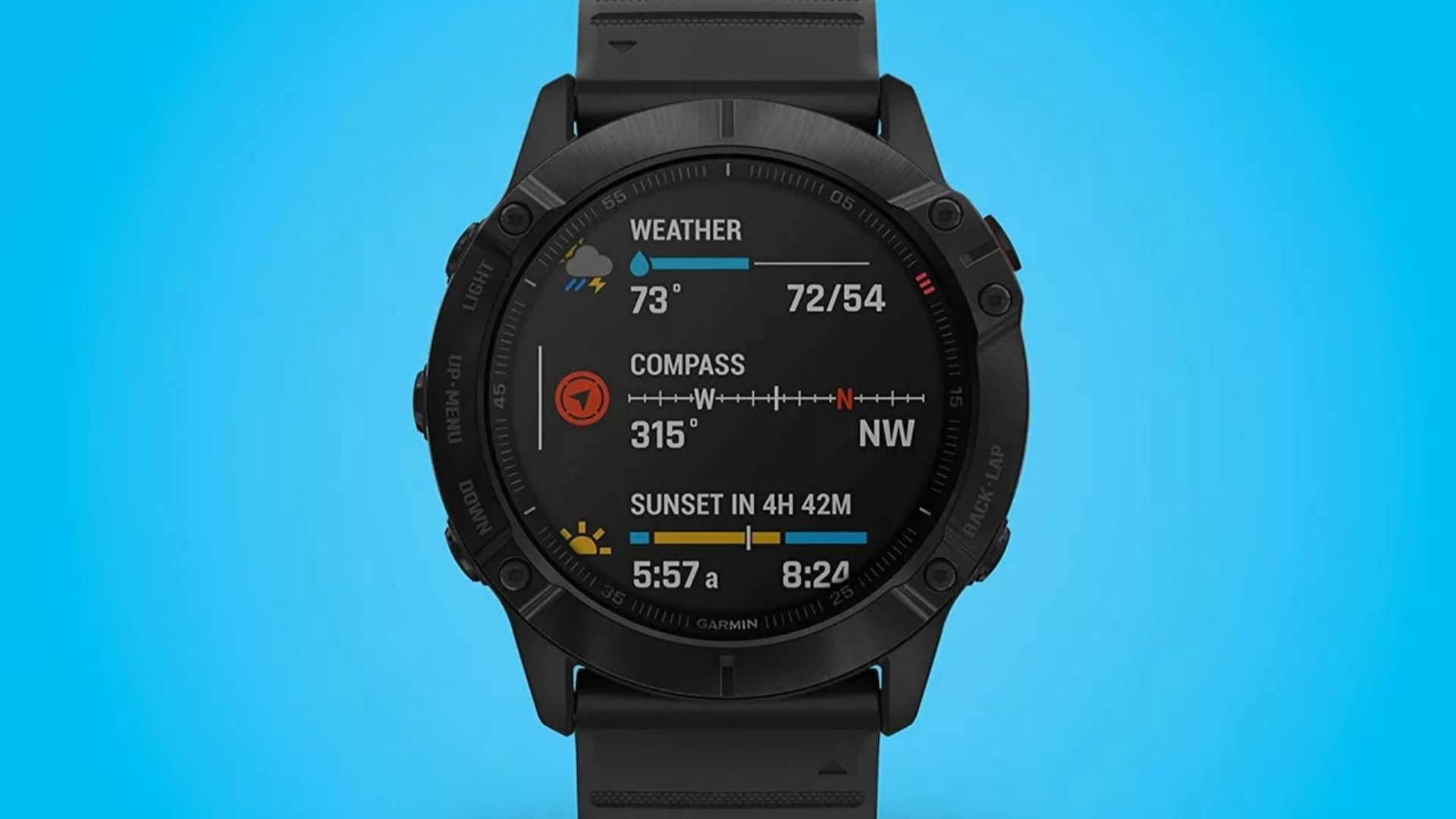
I am not your stereotypical runner. At six feet three inches and 215 pounds, I’m what race directors call a Clydesdale. Despite this, I still get out on the trails several times a week and track my data religiously using the Strava app and heart rate monitor. I recently became dissatisfied with the battery life of my Polar heart rate monitor, so my ultramarathoner wife recommended I take a look at running watches. After taking hers for a spin, I realized I also wanted a more rugged watch with expanded GPS mapping to take into the backcountry.
To that end, I set about researching all the best running watches on the market and a considerable number of mountain watches as well. Hopefully, my research helps you find the best running watch to suit your fitness needs.
Best Overall
Garmin Forerunner 945 LTE
Best Value
Coros Pace 2
Editor’s Choice
Garmin Fenix 6x Pro Multisport GPS watch
Honorable Mention Value Running Watch
Garmin Forerunner 245 Music
Best Value Multisport Watch
Polar Vantage M2
Best Basic Running Watch
Garmin Forerunner 45
Why you should trust us
I have more than 35 years of experience living and working outdoors with the tools I recommend. I’m an avid long-distance backpacker, rock climber, and mountaineer who understands the value well-designed gear delivers, especially when your life depends on it. I don’t get paid by the manufacturers and have editorial independence. My editor leaves it to me to recommend and prints what I write. All of this enables me to provide you, our valued readers, with our unvarnished, honest opinions on the recommendations we make.
Types of running watches
Running watches all pretty much do similar things. They track pace and distance of workouts accurately with GPS, monitor heart rate and caloric burn, and provide post-workout feedback. Typically, the higher prices include increased functionality, longer battery life, music/data storage, and navigation features.
Basic
These watches are simple in design and focused on supporting runners. They’ll track pace and distance, heart rate, and provide post workout feedback. So whether you’re focused on learning more about your workouts through data or tracking the distance and intensity of workouts, a basic running watch will support you.
Multisport
These are also known as triathlon watches for people who run, bike, and swim. Multisport watches typically are more versatile by design and support more activities profiles. To be a true multisport watch, the device must be able to track multiple sports in a single workout activity. Beware of watches that have run, bike, and swim functions but don’t allow you to link all three functions together in a single session.
Adventure
These watches have all the physio data of a running watch with the addition of navigation capabilities, to include topographic maps and point-to-point tracking, and have extended battery life to allow you to spend days in the backcountry without a recharge. These watches typically weigh more because they’re enclosed in more polymer and more durable components than basic running watches.
Key features of running watches
Heart rate monitoring
A good heart rate sensor is essential in tracking the intensity of your workout. These watches use an optical heart rate sensor that tracks the movement of blood through illuminated capillaries. If you want to increase the accuracy of these measurements, most models can accommodate the addition of a chest strap. The HRM function also provides you real-time data to show how hard you are pushing yourself on that hill or sprint, and how quickly (or not) your body recovers in session.
GPS tracking
GPS tracking enables you to measure distance and speed, get accurate time, and check out your workout tracks.
Navigation
Advanced running watch models enable you to navigate off trail through topographical map uploads, barometric altimeters, and integrated digital compasses.
Benefits of running watches
Train smarter
Running watches help you better track each workout, target areas for improvement, avoid sandbagging (through real-time data), and help motivate you to workout more and longer.
Hands-free use
Sure you can take your expensive and clunky phone along, trip, drop it, and crack the screen into a bajillion pieces, or you can just leave it at home and head out with a running watch.
Find your way home
Whether running through the woods on unfamiliar trails or in a new city, a running watch makes it easy to find your way back to the trailhead or your hotel — and more importantly, the hotel bar.
Pricing considerations for running watches
Budget
If you just want distance, pace, time, heart rate, date, and some activity tracking, you can find a basic running watch for $120 to $199.
Mid-grade
Do you want some more bells and whistles that gather training data, provide you workout recommendations, and has a longer battery life? You can find mid-grade watches in the $200 to $499 range.
Premium
Is money no object? Are you a data addict? Do you have a third lung and insane VO2max? Then you can find a premium advanced running or multisport watch for $500 and up. Want to get stupid and drop $1,700? Check out the Garmin MARQ Athlete Performance Edition.
How we chose our top picks
The watches recommended in this review were selected based on hands-on inspection, interviewing other experts, and thoroughly reviewing manufacturers’ specifications. We take our time to get to know the strengths and weaknesses of each item, and also check out the reviews of other experts just to make sure we’re not missing anything.
FAQs on running watches
You’ve got questions, Task & Purpose has answers.
Q. What should I look for in a running watch?
A: At a minimum, you’re going to want a watch that accurately tracks your heart rate and GPS position, and provides you feedback on your workouts so you can target performance improvement.
Q. What is a good running watch for beginners?
A: If you are looking to try a running watch but aren’t fully committed to paying hundreds of dollars for capabilities you might not need, check out the Garmin Forerunner 45. It’s basic, but will give you the basics: heart rate, GPS tracks, access to Garmin Coach, smart notifications, incident detection and assistance, and up to seven days of battery life — all for just over $100.
Q. How useful is a running watch?
A: Not to be cute, but it’s as useful as you make it. I’ve found that tracking workout data motivates me to exercise more frequently and longer. It also helps track your weekly workouts to keep you honest. You’ll train better with better data, and that’s the whole point.
Q. Running watch vs. fitness tracker?
A: If you want to accurately track your workout distance and pace and want to leave your phone at home, get a GPS running watch. If you want to track your walking or stair climbing, but accuracy isn’t a priority, get a fitness tracker.
Q. How much should I spend on a fitness watch?
A: It depends. If you want a basic watch, about $120. If you want some premium functions but not a premium price, about $250. If you want the very best, you’re looking at $550 and up.
Q. Do I need a running watch?
A: No. You can get off your ass, lace up your running shoes, and run — but you won’t get any workout data that way and might get lost because you don’t have GPS and you failed land nav class.
Our gear section
Joe Plenzler is a Marine Corps veteran who served from 1995 to 2015. He is a backcountry expert, long-distance backpacker, rock climber, kayaker, cyclist, wannabe mountaineer, and the world’s OK-est guitar player. He is currently section-hiking the Appalachian Trail with his partner, Kate Germano. He supports his outdoor addiction by working as a human communication consultant, teaching at the College of Southern Maryland, and helping start-up companies with their public relations and marketing efforts.
